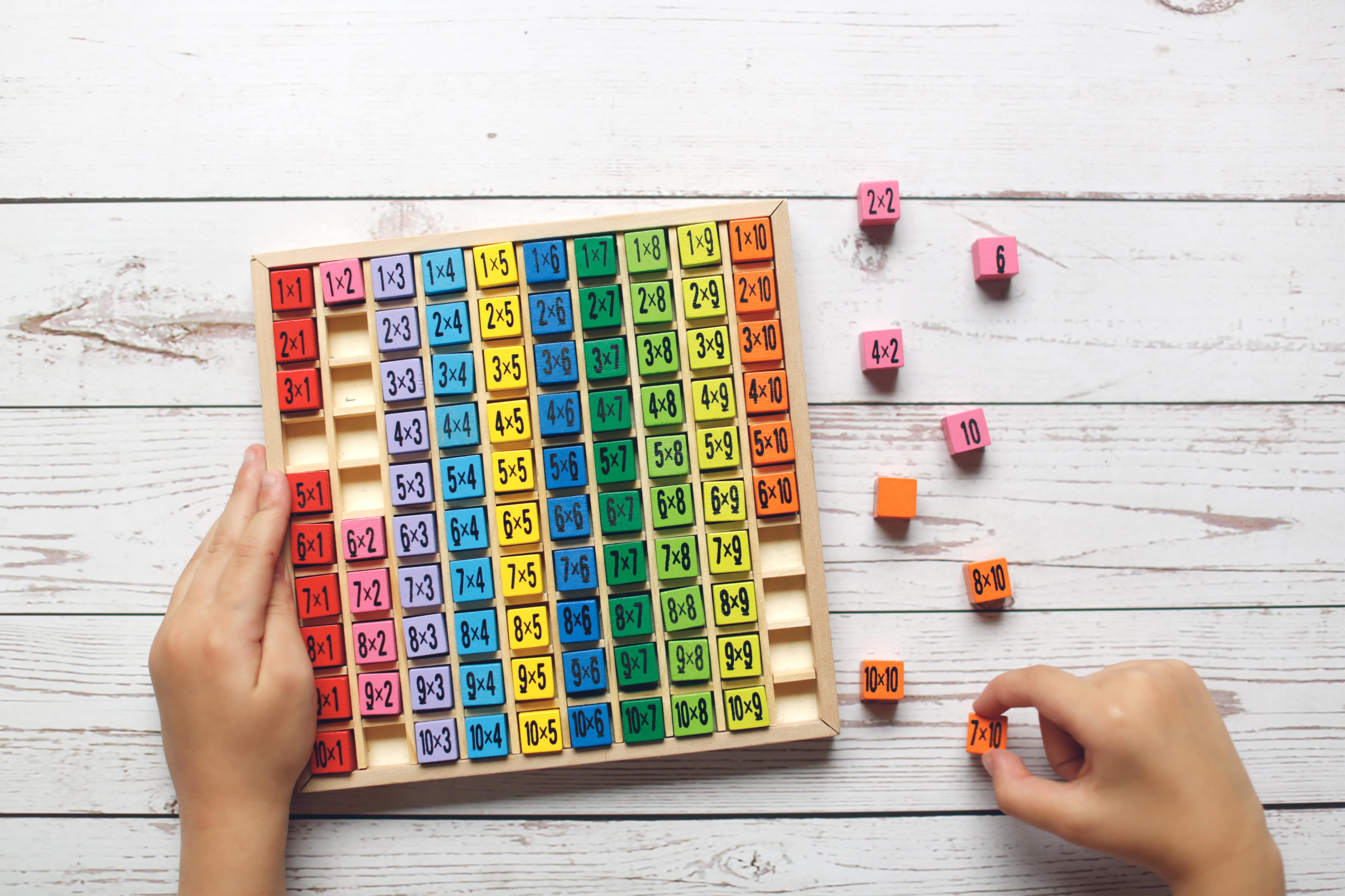Making learning fun for kids starts with sparking their natural curiosity and finding creative ways to keep them engaged. Games, real-life examples, and hands-on activities can turn lessons into something children genuinely look forward to. For ideas and strategies, explore this guide on making math fun for learners of all ages.
Transforming traditional lessons into engaging experiences is especially valuable in early childhood education, where building a strong foundation supports future academic success. When kids enjoy the process, they’re more likely to stay focused, absorb new concepts, and develop important lifelong habits such as curiosity, critical thinking, and perseverance. Making learning fun doesn’t mean losing structure—it means weaving creativity, play, and exploration into lessons so students can grow at their own pace.
If you’ve ever helped a child with homework and noticed their focus drifting, you’re not alone. Parents, caregivers, and educators all understand how challenging it can be to keep kids motivated—especially with subjects like math. With the right approach, such as introducing a game, puzzle, or story, the experience can shift completely. Suddenly, students are asking questions, thinking critically, and feeling excited to learn. That’s why many teachers and learning platforms are combining traditional lessons with interactive tools to inspire curiosity and help children see learning as something to enjoy every day.












Creating a fun learning experience isn’t just about keeping kids entertained—it’s about helping them build a strong educational foundation and develop essential skills for the future. When children are actively engaged, they’re more likely to absorb new ideas, think critically, and enjoy the learning process.
Here are a few reasons why making learning fun matters:
When learning feels enjoyable, children often stay motivated, gain confidence in their abilities, and build skills that support success both inside and outside the classroom. Creating joyful, engaging experiences helps lay the groundwork for a lifelong love of learning.
In the early years, children often learn best through play. Play-based learning in early childhood can support social growth, cooperation, and emotional development—all while keeping kids engaged and having fun. For inspiration, explore this collection of playful learning games designed to spark curiosity and encourage discovery.
Here are a few ways to support learning through play:
Play isn’t just fun—it can be an important way for kids to learn, explore, and grow at their own pace.
Kids often learn best when they can dive in and get hands-on. This type of learning taps into their natural curiosity and encourages them to explore concepts instead of just watching or listening actively. By experimenting, making mistakes, and discovering solutions, children can build critical thinking skills in a fun and engaging way.
Math activities that involve hands-on challenges—like solving puzzles, working with shapes, or using objects to count and measure—help turn abstract numbers into exciting discoveries. Projects that involve building patterns or exploring geometry can spark creativity while strengthening problem-solving skills. Adding games or friendly competition, like those found in interactive math platforms, may also boost motivation and make lessons feel more like play than work.
When kids are actively involved and enjoying the process, they’re more likely to stay motivated, retain what they’ve learned, and build confidence in their abilities.
Educational tools like Prodigy can help turn traditional learning into exciting, real-world adventures that capture kids’ imaginations. With game-based math challenges, Prodigy makes concepts more interactive and rewarding, encouraging children to keep practicing without it feeling like homework.
You can also blend in-game play with activities that build skills such as teamwork and problem-solving, or connect math concepts from Prodigy to everyday examples like shopping, cooking, or sports. Bringing in community role models to share how they use math in their careers can make lessons feel even more relevant and inspiring.
When learning feels meaningful, interactive, and fun—as it can with Prodigy—kids may be more likely to stay curious, build confidence, and develop a lasting interest in exploring new ideas.












Boost confidence. Build skills. Unlock more magic.
Prodigy makes learning math so much fun, kids actually want to play.

Language learning can be fun, engaging, and woven into everyday life. When kids explore language through games, songs, and hands-on activities, they have opportunities to build communication skills while gaining confidence.
Playful tools—like rhyming games, storytelling, and vocabulary challenges—help reinforce new words and make practice feel exciting. Encouraging reading with books that match their interests, or turning writing into a creative activity with story prompts, letters, or comics, can also keep kids motivated.
Everyday conversations and role-playing give children the chance to practice speaking and listening in a relaxed, natural way. When language becomes part of play, kids may develop stronger skills, greater self-expression, and a lifelong interest in learning.
Creative learning isn’t just about making art—it’s about encouraging kids to think in new ways, solve problems, and express themselves freely. When children have the space to explore their imagination, they can build confidence and strengthen critical thinking skills that extend beyond the classroom.
Here are a few ways to nurture creative learning:
When creativity is encouraged, kids may become more confident, curious, and resilient—ready to approach challenges with imagination and enthusiasm.
The most effective educational activities often feel more like play than traditional lessons. When kids are actively involved, they tend to absorb information more naturally and stay motivated longer. That’s why hands-on experiences, playful challenges, and open-ended exploration can be such powerful learning tools. These approaches encourage creativity, critical thinking, and problem-solving in ways that feel exciting and meaningful.
Simple activities—like kitchen science experiments, math scavenger hunts, or building block geometry—can turn everyday moments into valuable lessons. Educational games and puzzles add a sense of friendly competition that reinforces skills, while unstructured play gives children the freedom to explore and discover their interests. Learning by doing can help transform routine activities into opportunities for growth and confidence.
Encouraging active learning helps kids develop independence, resilience, and curiosity, while showing them that mistakes are part of the process, not something to fear. By making education feel playful and engaging, we can foster a positive mindset around learning that stays with children well beyond the activity itself—supporting success both inside and outside the classroom.
Kids grow and learn in different ways at every stage, and recognizing these differences is key to supporting their success. From toddlers exploring the world through play to older children building more advanced skills, each phase of development benefits from a tailored approach. By matching educational activities to a child’s age and learning style, you can help keep them engaged and excited about learning.
Blending different teaching methods—such as hands-on activities, storytelling, visual aids, and games—can meet children where they are in their learning journey. It’s also important to let kids progress at their own pace and provide individualized support when needed. This personalized approach can build confidence and help ensure every child has the opportunity to thrive, no matter their age or abilities.
Interactive experiences play a vital role in helping kids develop essential social and communication skills while keeping them actively engaged in their education. When kids interact with others, they learn important lessons about teamwork, empathy, and problem-solving that extend well beyond academics.
Here's how to make the most of interactive learning:
By focusing on interactive experiences, educators and caregivers can help children become more confident learners and thoughtful communicators—skills that will benefit them throughout their lives.
The most impactful learning activities are intentionally designed to promote specific skills and meaningful outcomes that support a child’s overall development. Whether the goal is to foster creativity, build critical thinking, or strengthen communication, each activity benefits from a clear purpose that guides how it’s delivered.
Using a mix of teaching methods—like visual aids, hands-on projects, storytelling, and technology—helps children connect with material in ways that resonate with them. This variety keeps learners motivated and ensures that every child has the opportunity to engage meaningfully with concepts.
Regular assessments—formal or informal—play a crucial role in understanding how well children grasp concepts. Observations, quizzes, or discussions can provide insight into their strengths and challenges, allowing caregivers and educators to adjust strategies and offer personalized support. Encouraging reflection, through journaling or group discussion, helps children recognize progress, take ownership of their learning, and develop a growth mindset.
Fun isn’t just a teaching tactic—it’s a mindset that transforms how children experience the world. Hands-on experiments, creative games, role-play, and reflection all create engaging experiences that help kids grow intellectually, emotionally, and socially. When learning is enjoyable, children are more curious, confident, and motivated to explore new ideas.
Educational tools like Prodigy combine interactive, game-based learning with curriculum-aligned math practice. Platforms like Prodigy can help students stay engaged, reinforce concepts, and build skills in a motivating environment. Prodigy play increases independent learning and can improve math achievement. By integrating Prodigy with hands-on activities and real-world examples, parents and educators can make learning feel like an adventure—supporting both skill development and a positive mindset around education.
By embracing interactive, age-appropriate, and purposeful activities—both on and offline—kids can feel empowered to explore, take risks, and succeed on their own terms. It’s not about choosing between learning and play; it’s about making the two work together. When education is joyful, children don’t just reach their potential—they exceed it.